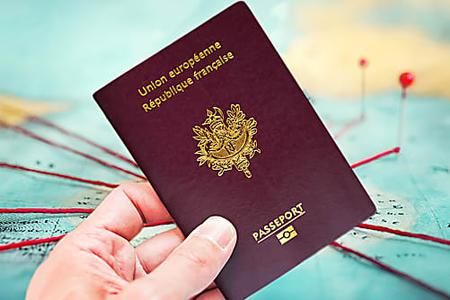Germany: Citizenship law could prompt 50,000 Turks to apply
German lawmakers have endorsed a new path to citizenship, allowing more people to gain dual nationality. A representative of Germany's Turkish community warns that officials might struggle to process all the applicants.
The Turkish community in Germany said some 50,000 people with Turkish roots were expected to make naturalization applications in the coming years following the country's citizenship law reform.
"And I assume that, in the long term, all 1.5 million citizens of Turkish origin in Germany who do not yet have German citizenship will acquire dual citizenship," the head of the Turkish Community in Germany organization, Gökay Sofuoglu, told the media group Redaktionsnetzwerk Deutschland.
On Friday, Germany's lower house of parliament, the Bundestag, approved a law that shortens the path to citizenship and makes it easier to hold multiple nationalities.
'You belong to Germany' — Scholz
"If word gets around about what the new law says, the number of applications for naturalization will increase continuously," Sofuoglu said.
He feared German authorities will struggle to process all the applications as "they are already overwhelmed."
The first wave of Turkish migration to Germany took place in the 1960s when German companies recruited workers from foreign countries to help with its post-war reconstruction. Today, an estimated 3 million people of Turkish heritage live in Germany, which has a total population of around 83.3 million. Out of 3 million Turkish people in Germany, nearly 1.5 million still have Turkish citizenship.
On Friday, Chancellor Olaf Scholz said Germany owed them "an immense amount."
"With the new citizenship law, we are saying to all those who have often lived and worked in Germany for decades, who abide by our laws, who are at home here: You belong to Germany," he said.
Shorter path to German citizenship
Roughly 14% of the people living in Germany are not German citizens. and a 2022 survey found there is nearly the same number of German citizens with "migrant background," meaning they have been naturalized, or have at least one immigrant parent. Also in 2022, a record 168,500 people were granted German citizenship.
But this record seems destined to be broken soon, as the new law aims to make foreigners living in German eligible for citizenship after five instead of eight years of being based in the EU country. In cases where applicants are "exceptionally well integrated," naturalization would be possible after three years, and the bill will also loosen restrictions on dual nationality.
lo/dj (dpa, Reuters, AP)

